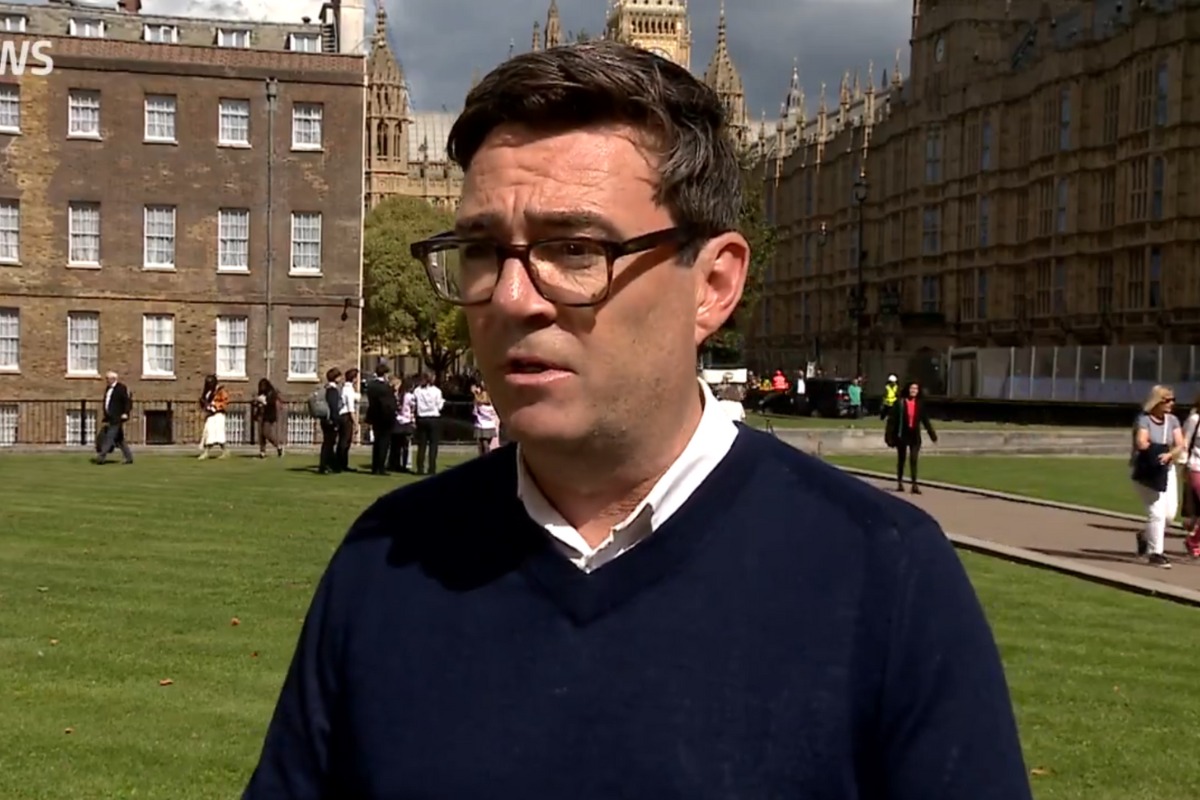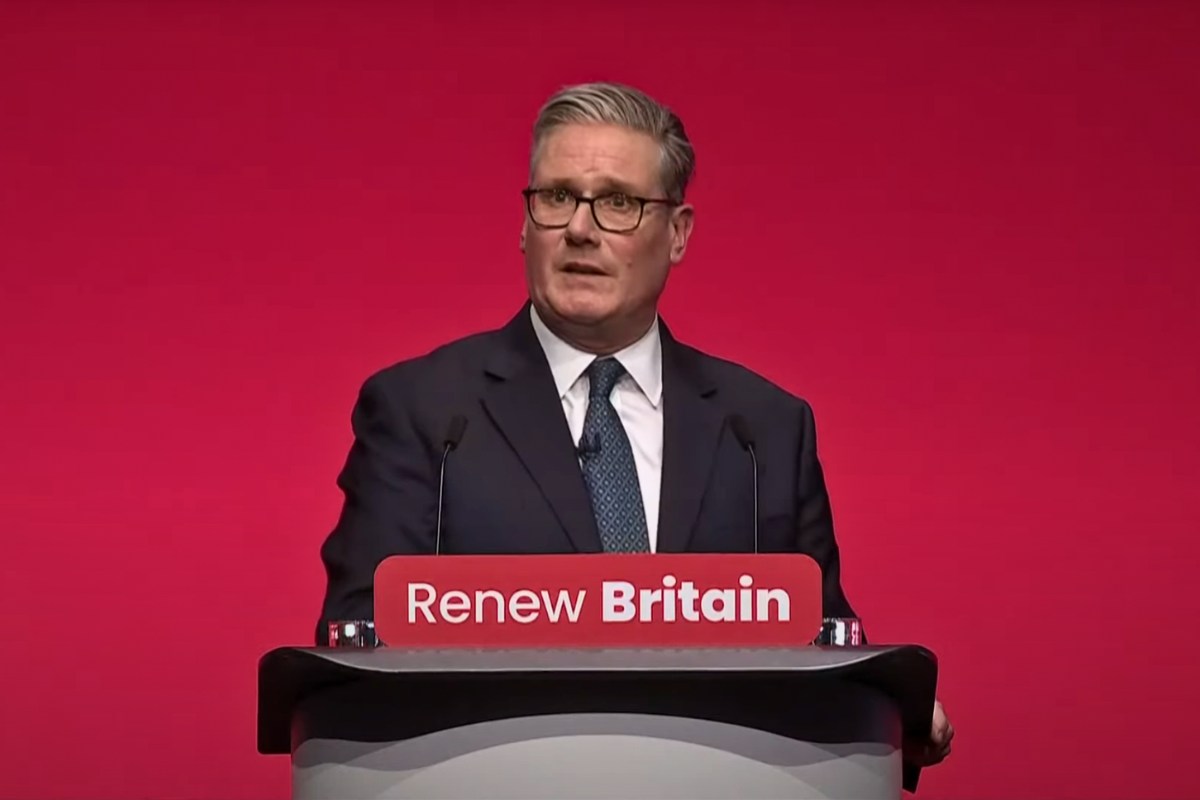Even at the best of times, capitalist politicians everywhere are hopelessly out of touch, living on another planet from the rest of us. But as the crisis in society deepens, the gulf between the political elites at the top and ordinary people down below becomes a chasm.
It is the seething hatred towards the self-serving ladies and gentlemen in power that has led to recent revolutions and revolts in Nepal, Indonesia, and now Madagascar.
Similarly in Britain, it is the disgust towards the country’s traditional political parties that is fuelling the rise of Reform UK, which consistently now leads the polls.
According to the latest predictions, Nigel Farage’s party is on course to win a majority of seats at the next general election. Labour, meanwhile, could be reduced to under 100 MPs in the House of Commons. Other recent projections are in the same ball park.
What has been the response of ‘Sir’ Keir Starmer and co., the leaders of Britain’s ruling party, to all this?
If this week’s Labour conference is anything to go by, it seems that the hapless Prime Minister and his allies are intent on burying their heads even deeper in the sand (or perhaps some other place where the sun doesn’t shine).
The party’s annual gathering – taking place in Liverpool on this occasion – is always used by senior figures as an opportunity for grandstanding. But at this year’s event, the Labour leaders were even more deluded than usual: full of bluff and bluster, with no shortage of hollow rhetoric and empty promises.
Faced with an existential polycrisis, Starmer and his ministers are floundering; thrashing around and clutching at straws.
This has little to do with the Labour leader’s personal qualities, or lack thereof, and everything to do with the intensifying crisis of British – and world – capitalism.
As the old saying goes, a man on the edge of a cliff does not reason. Or put another way, in the words of the ancient Greek proverb: whom the gods wish to destroy, they first make mad.
Dead man walking
Almost 15 months after entering Number 10, Starmer arrived in Liverpool amidst a cloud of scandal and sleaze; storm and stress.
From day one in Downing Street, the ‘Labour’ PM has been plagued by political problems: from the widening black hole in the country’s public finances; to the strain on the ‘special relationship’ between the UK and the USA; to the heightening tensions around migration, whipped up and pounced upon by demagogues like Nigel Farage and Tommy Robinson.

At the same time, Labour has also been rocked by troubles closer to home.
From serial accusations around accepting corporate freebies; to the party’s tax-dodging (now former) deputy, Angela Rayner; to revelations about the friendly connections between Blairite (also now former) UK-US ambassador Peter Mandelson and infamous billionaire paedophile Jeffrey Epstein: Labour’s leading lights are covered in muck.
The circus of Donald Trump’s recent state visit, meanwhile, did little to distract from these rumbling crises facing Starmer’s government.
Instead, the Prime Minister came to this year’s Labour conference with his future hanging in the balance, and a sword hanging over his head. And the response he received will have done nothing to change the general prognosis: for all intents and purposes, Starmer is a dead man walking.
We are witnessing the beginning of the end for Starmer and his ill-fated government
Pleasing nobody
Underlying the crisis of Starmer’s government is the crisis of British capitalism. And on this front, the Labour leaders had nothing to say, other than the usual trite soundbites.
Chancellor Rachel Reeves did her best to look both ways at once, hoping to reassure both jittery investors and disenchanted voters. In the end, however, she placated neither.

Put simply: Britain’s capitalist creditors and working families have conflicting class interests. To appease one means upsetting the other.
Hence every attempt by Starmer’s government to restore the economic equilibrium, by carrying out cuts, has only disturbed the social and political balance: eroding any remaining support for Labour, and fuelling right-wing populism in the shape of Farage’s Reform.
The inability of Starmer and Reeves to push through their austerity agenda, meanwhile, in the face of backbench opposition, has drained the government’s authority and credibility in the eyes of the markets.
Feeling the squeeze
The Chancellor’s farcical conference speech was a reflection of this contradiction.
On the one hand, Reeves chided those who say “there’s no difference between a Labour government and a Conservative government”, and disingenuously declared that “we can’t have a return to austerity” – at a time when she is further sharpening the knives, ahead of the upcoming Autumn Budget.
On the other hand, from the rostrum, the Chancellor repeatedly told the bankers and billionaires that only Labour – and not Farage – could be trusted to “remain steadfast in the commitment to economic stability” and “fiscal discipline” (read: austerity and cuts).
At the same time, taking aim at Reform UK, as they suck up working-class voters in former Labour heartlands, Reeves stated:
“There is only one party that was founded by working people and one party that is committed absolutely to defending their interests. The clue is in the name, conference – the party of working people is the Labour Party.”
But nobody outside of the hall believed this claptrap. Especially as corporate lobbyists and big business bosses sat next door, shelling out £6k a head to rub shoulders with frontbench MPs.
With UK economic growth flatlining, despite all of the Labour leaders huffing and puffing, and a financial gap of around £30 billion in the budget, it is clear that – far from “defending the interests of working people” – Starmer and Reeves will be looking to squeeze workers and the poor even harder in the months and years ahead.
In turn, this Labour government will find itself further squeezed – between the twin millstones of the capitalists and the working class.
Fighting the right
Taking on the baton from Reeves, Starmer continued along the same lines in his keynote speech: warning of “uncomfortable decisions” ahead; vacuously talking about “Britain’s promising future”; and attempting to rally activists and voters against Farage’s Reform.
“The country faces a choice,” the Labour leader stated. “We can choose decency or division; renewal or decline.”
Similarly, speaking to the BBC as conference began, the Prime Minister denounced Reform’s proposal to remove those with indefinite leave to remain – a policy that he described as “racist” and “immoral”.

“To remove illegal migrants,” Starmer quickly added, however, just to be crystal clear, “I’m up for that.”
“We have not had an opposition like Reform in this country before,” the Labour leader continued. “We have to beat Reform…Now is not the time for introspection or navel-gazing. This is a fight we are all in together.”
Starmer’s strategy going forwards is therefore clear: on the one hand, to appeal to big business and calm the capitalists’ nerves; on the other hand, to appeal to voters to blindly unite behind him and Labour in order to keep Farage and Reform from power.
Workers and youth must have no trust in Starmer’s Labour, however. They cannot – and will not – genuinely fight the right.
These cynical hypocrites are themselves responsible for the most disgusting migrant bashing and racist policies.
Furthermore, they defend the rotten establishment; the broken status quo that is pushing increasingly layers into the arms of right-wing populists like Farage.
Liberal popular fronts with knights of the realm and warmongers like Sir Kid Starver will be outright harmful – precisely playing into the hands of Farage.
What is needed is an independent class alternative, based on bold socialist policies.
Wolf in sheep’s clothing
Unfortunately, such an alternative does not currently exist. Instead, there is a massive political vacuum on the left.
Careerists like Andy Burnham are currently manoeuvring themselves into position, looking to succeed Starmer as Labour leader by giving themselves a ‘left’ gloss of paint.

Burnham has opportunistically made defiant noises about challenging the bond markets, nationalising the utility companies, and taxing the rich.
Words are cheap, however. Lest we forget, Starmer also slyly presented himself as a left-winger in his bid for the throne. And, unfortunately, there were many on the left who naively believed him.
In reality, the Manchester Mayor and his new ‘Mainstream’ faction are no true friends of the working class. When push comes to shove, Burnham supports the same bankrupt system as the current Labour leaders. Beware of wolves in sheep’s clothing.
Burn it down!
At the same time, efforts to launch a new left party – Jeremy Corbyn and Zarah Sultana’s ‘Your Party’ – have stuttered due to infighting at the top.
Frustrated by this bickering and foot-dragging, many young people are instead turning to the Greens, attracted by the billionaire-bashing rhetoric of its new ‘eco-populist’ leader, Zack Polanski.
Amongst the younger generation, meanwhile, there is a growing interest in the ideas of communism, accompanied by a burning desire to get organised – as evidenced by the enthusiastic reception garnered by the RCP on campuses across the country in recent weeks.
The task in front of us is to channel this radical energy and anger towards revolutionary ends; to take inspiration from the militant mass movements breaking out in Nepal and Indonesia, France and Italy, and burn this entire decrepit system down.






